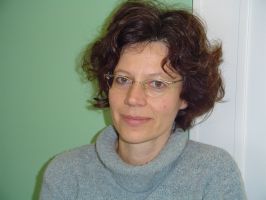Karen Phalet, born in Leuven, Belgium, in 1963. Ph.D. from the Katholieke Universiteit Leuven. Associate Professor in Cross-Cultural Studies at Utrecht University and Professor Extraordinarius of Prejudice at Radboud University Nijmegen.
Fellow (1 September 2005 – 31 January 2006)
ACCULTURATION, ETHNIC RELATIONS AND RELIGION
The broad aim of the project was to bring together perspectives from ethnic studies and from religion studies on acculturation and religious change among Turkish minorities in Europe. The project identifies three research problems. My first question was to what extent the secularisation paradigm of religious change in modern societies can contribute (or not) to our understanding of religious change among Muslim minorities of Turkish origin in Europe. Analysing Dutch data for the period 1998 – 2002, we found that the meaning of religion changes across generations in the direction of more individualized and reflective forms of religious involvement. While conventional religious practice seems to decline, however, there is also evidence of continued religious self-identification. The second question I tried to address was concerned with the interconnections between ethnic relations, religious change and acculturative change in other life domains. Analysing data from our own survey of Turkish young adults in Rotterdam, we could show how their religious involvement related to the construction of ethnic boundaries in relations with non-Muslims. Yet, we could not confirm a linear increase in religiosity in response to increased overt public prejudice following September 11th. My last question focused on the normative impact of religion in the domain of family values and family relations. Extending cross-cultural insights and findings from Kagitçibasi’s model of family change to Turkish migrant families in Germany, we could show that religious socialization consolidates conservative gender role values, but only in Turkish sons. Turkish daughters in contrast, are moving towards more egalitarian gender role values. These arguments and findings were presented at invited lectures during my stay and will be published in new contributions to international journals and edited volumes.
